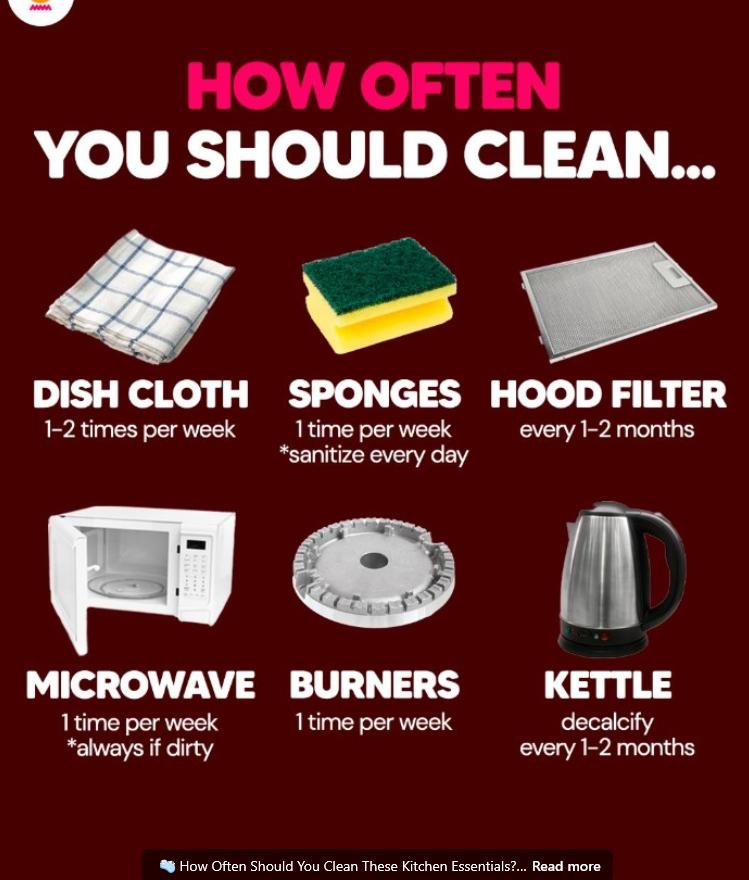ADVERTISEMENT
ecially meat or fish, clean the can more frequently to prevent odors and bacteria from spreading.
8. Stovetop
Your stovetop can quickly accumulate grease, food spills, and splatters, especially if you cook frequently. Without regular cleaning, these remnants can burn, creating tough-to-remove stains and odors.
How often to clean:
- After each use: Wipe down your stovetop with a damp cloth and mild cleaner after cooking.
- Deep clean: Once a month, use a degreaser or a baking soda paste (baking soda and water) to remove stubborn grease stains.
9. Pots and Pans
Grease, food remnants, and burnt-on stains are common problems with pots and pans. Regular cleaning is essential to keep them in good condition and prevent the buildup of harmful bacteria.
How often to clean:
- After each use: Wash your pots and pans immediately after cooking to prevent food residue from hardening. Use warm water and a non-abrasive scrubber to avoid damaging the surface.
- Deep clean: Once a month, give your pans a deep clean by soaking them in warm soapy water or using a mixture of vinegar and water to lift stubborn stains.
10. Blender
Blenders are notorious for holding onto food particles, particularly in hard-to-reach crevices. Leftover food can start to mold, and if not cleaned properly, it can affect the taste of your next smoothie or shake.
How often to clean:
- After each use: Rinse the blender immediately to remove leftover food particles. For a deeper clean, wash it with warm water and soap or run it with warm water and a few drops of dish soap on low speed.
- Deep clean: Once a week, disassemble the blender and clean all components thoroughly. Pay attention to the seals and blades to remove any build-up.
Final Thoughts
Maintaining a clean kitchen is essential not only for aesthetics but also for food safety and hygiene. By cleaning these common kitchen essentials regularly, you’ll avoid the build-up of germs, bacteria, and odors that can compromise both your health and your cooking experience. Set a routine for cleaning these items, and don’t forget to deep clean them periodically for the best results. A sparkling, sanitized kitchen will be both pleasant to work in and safe for you and your family.
